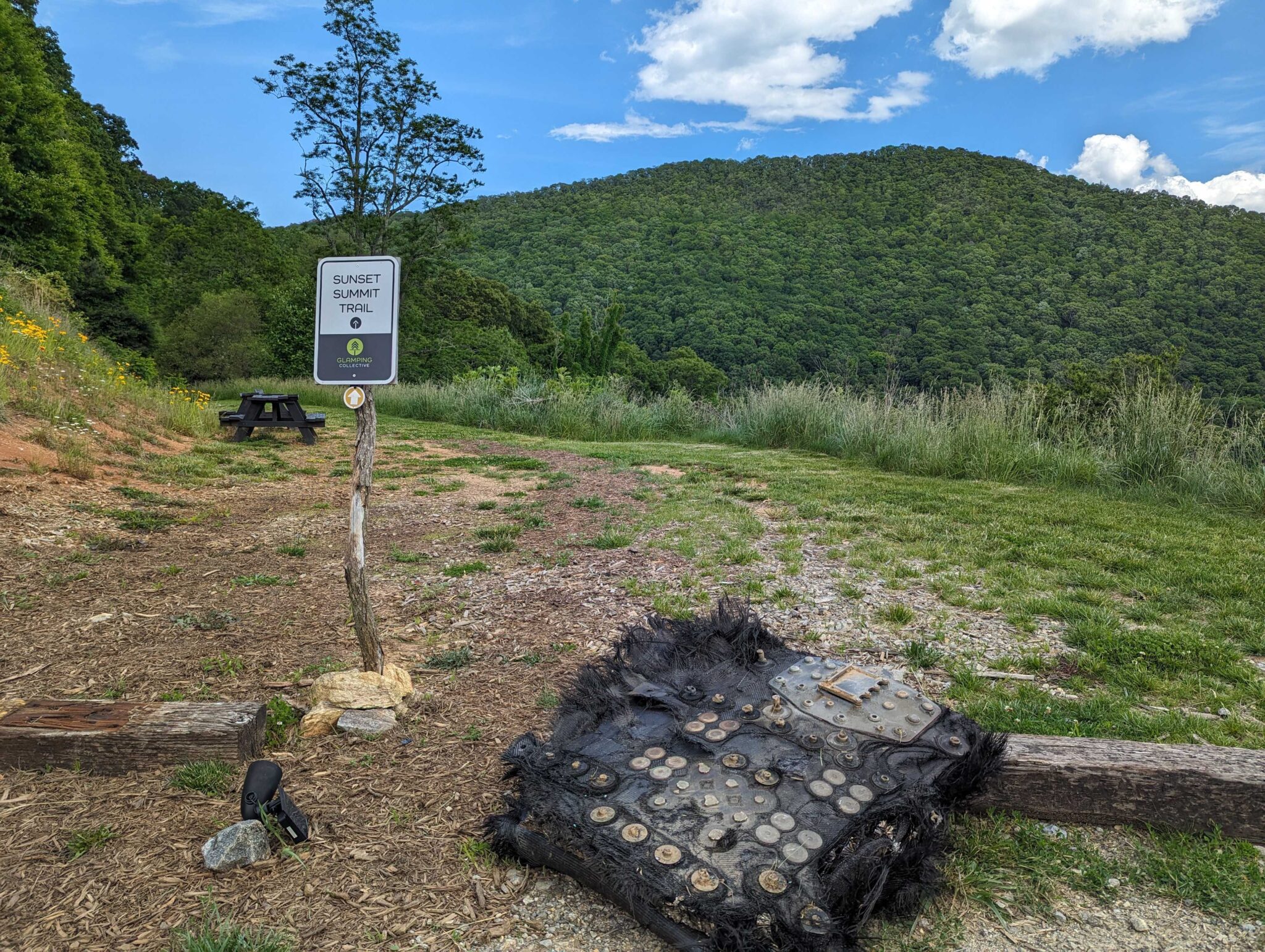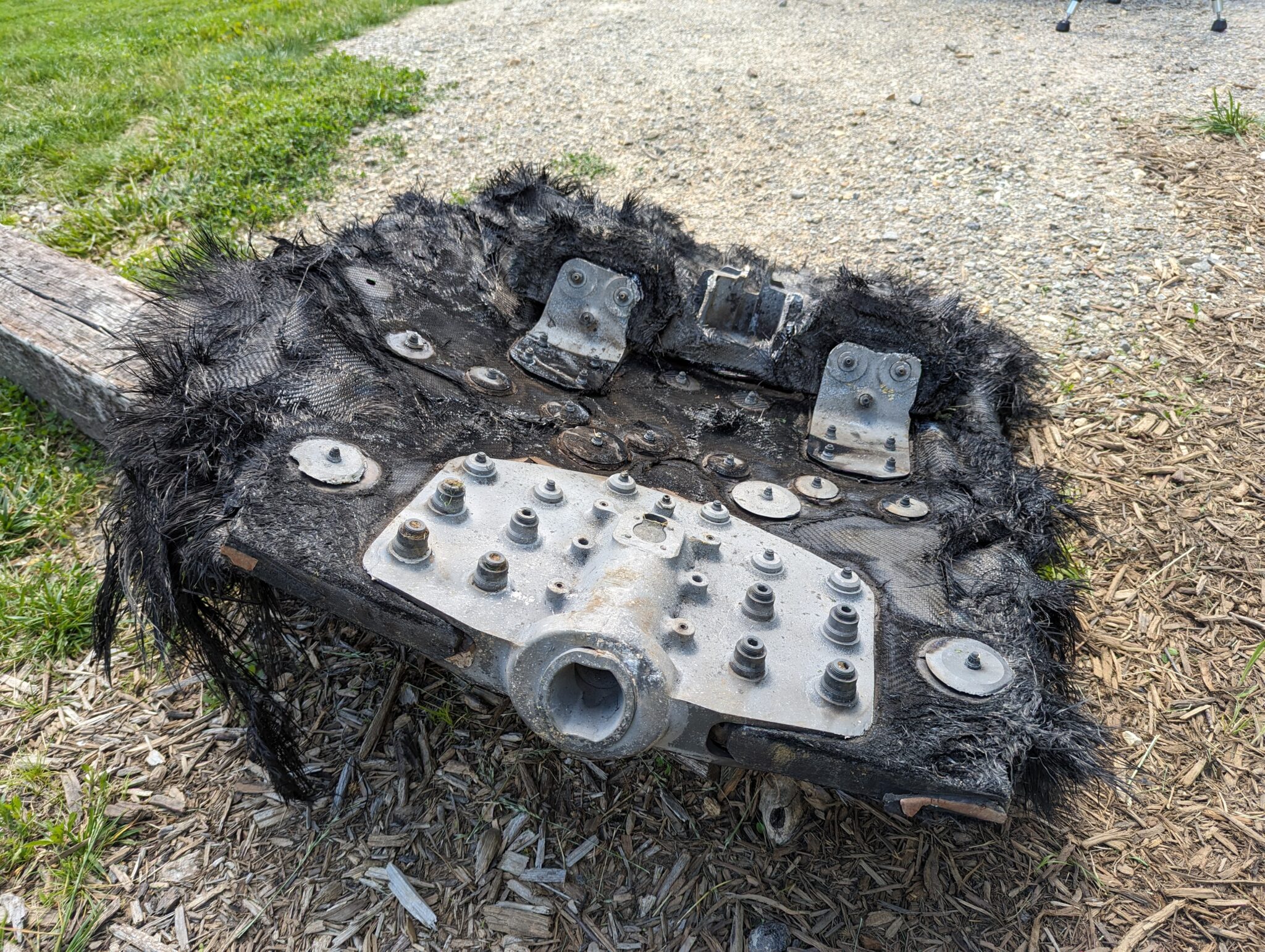The mountainous area of the western part of the state of North Carolina is known for its dark sky, allowing good stargazing. Therefore, this area attracts the attention of astronomers. But a recent case has shown that space debris can get even to these remote places. On May 22, gardener Justin Clontz and his father found a large piece of debris near the trail near the Glamping Collective campsite.

The debris, measuring about 1 x 1 m, which consisted of composite carbon fiber and burnt metal, had a faint smell of ozone. Clontz and other workers at first thought it might be a piece of military aircraft, and did not dare to touch it.
Here is the reentry path indeed going just west of Asheville NC (direction of flight was to the NE) pic.twitter.com/5niV87xh51
— Jonathan McDowell (@planet4589) May 24, 2024
“It landed directly in the middle of the trail. It was just wild. I really didn’t know what to think,” Clontz said.
As it turned out, the fragment probably came from the SpaceX Dragon spacecraft of the Crew-7 expedition, which returned to Earth on March 12, 2024. Astrophysicist Jonathan McDowell of the Harvard-Smithsonian Center for Astrophysics confirmed that this is part of the Crew Dragon service module.

The trunk, as SpaceX calls it, is the leaky tail section of the Dragon spacecraft. This section, transporting cargo or small satellites, is equipped with solar panels that power Dragon during flight or docking with the ISS. After entering the atmosphere, the service module is dropped and it remains in orbit.
Parts of the spent spacecraft “trunks” can remain intact after entering the Earth’s atmosphere. For example, recently similar debris was found in Saskatchewan in May 2024 and in the Australian outback in August 2022. After the case in Australia, SpaceX sent a team to investigate. But regarding the discovery in North Carolina, the company has not yet contacted eyewitnesses.

Despite these findings, the probability of being hit by falling space debris is very low. According to the Aerospace Corporation, the risk is less than one in a trillion.
Earlier, we reported on how a piece of a Chinese rocket fell and got stuck in a field.
According to space.com


